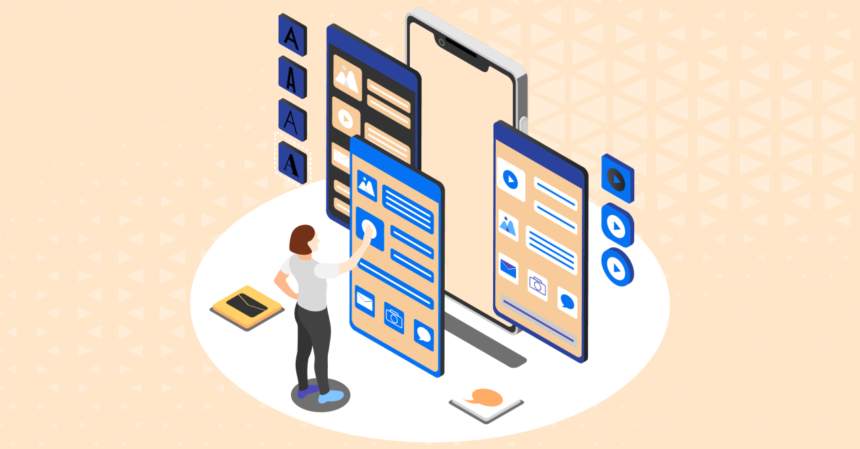In the fast-paced world of mobile app development, staying ahead of the curve requires a methodology that is as dynamic and adaptable as the industry itself. Enter Agile methodology—a development approach that has transformed the way teams build software, particularly mobile applications. Agile is not just a buzzword; it’s a proven framework that enhances collaboration, increases flexibility, and ensures that the final product meets the evolving needs of users and businesses alike. In this article, we’ll explore why Agile methodology is essential for successful mobile app development and how it benefits both developers and clients.
Understanding Agile Methodology
Agile methodology is a project management and software development approach that emphasizes iterative progress, collaboration, and flexibility. Unlike traditional Waterfall methods, which follow a linear path from concept to completion, Agile breaks the development process into smaller, manageable cycles known as sprints. Each sprint typically lasts two to four weeks and involves planning, development, testing, and review phases.
The core principles of Agile include:
- Customer Collaboration: Continuous communication with stakeholders and customers to ensure that the product meets their needs.
- Iterative Development: Building and releasing small, functional pieces of the product regularly, allowing for feedback and adjustments.
- Flexibility: Adapting to changes in requirements, even late in the development process, to deliver a product that aligns with the latest user needs and market trends.
- Cross-Functional Teams: Bringing together designers, developers, testers, and other stakeholders to work collaboratively throughout the project.
The Importance of Agile in Mobile App Development
Mobile app development is a rapidly evolving field where user preferences, technology, and market conditions can change overnight. In such an environment, the rigidity of traditional development models can be a significant disadvantage. Agile methodology, with its focus on flexibility and iterative progress, is particularly well-suited to the challenges of mobile app development.
Here’s why Agile is essential for successful mobile app development:
- Adaptability to Changing Requirements
One of the most significant advantages of Agile methodology is its ability to adapt to changing requirements. In mobile app development, it’s not uncommon for new features to be requested, or for market conditions to shift during the development process. With Agile, these changes can be incorporated into the project without derailing the entire timeline.
For instance, if a competitor releases a new feature that users are flocking to, an Agile team can quickly pivot to include a similar feature in their app. This adaptability ensures that the final product remains relevant and competitive in the market.
- Improved Collaboration and Communication
Agile emphasizes regular communication and collaboration among all stakeholders, including developers, designers, testers, and clients. Daily stand-up meetings, sprint reviews, and retrospectives are standard practices in Agile, fostering an environment where everyone is on the same page.
This level of collaboration is particularly beneficial in mobile app development, where the user experience (UX) and user interface (UI) are critical. Designers and developers can work closely together to ensure that the app’s design and functionality are seamlessly integrated. Additionally, continuous feedback from clients ensures that the app aligns with their vision and business goals.
- Faster Time-to-Market
In the competitive world of mobile apps, getting to market quickly can be the difference between success and failure. Agile methodology accelerates the development process by breaking the project into smaller sprints, each resulting in a potentially shippable product increment.
This approach allows teams to release a minimum viable product (MVP) or even fully functional versions of the app much faster than traditional methods. The ability to get a product into users’ hands quickly means that businesses can start generating revenue, gathering user feedback, and iterating on the product much sooner.
- Continuous Testing and Quality Assurance
In Agile, testing is not a phase that happens after development is complete; it’s an integral part of every sprint. Continuous testing ensures that each increment of the app is functional, secure, and free of critical bugs before it moves onto the next stage.
This approach to quality assurance is particularly important in mobile app development, where a bug or crash can lead to negative reviews, poor user retention, and ultimately, loss of revenue. By catching and fixing issues early, Agile teams can maintain a high standard of quality throughout the development process.
- User-Centric Development
One of the core principles of Agile is customer collaboration, which naturally extends to the end-users of the product. In mobile app development, this user-centric approach is crucial. Agile allows for regular user feedback, which can be incorporated into the app’s development, ensuring that the final product meets the users’ needs and expectations.
For example, after the release of an MVP, user feedback can guide the development of new features, improvements, and bug fixes. This iterative process ensures that the app evolves in a way that resonates with its target audience, leading to higher user satisfaction and engagement.
- Risk Management
Agile’s iterative approach helps in identifying and mitigating risks early in the development process. Each sprint offers an opportunity to review what’s working and what’s not, allowing the team to address potential issues before they become significant problems.
In mobile app development, where technology and user preferences can change rapidly, this proactive risk management is invaluable. It ensures that the app remains on track, both in terms of functionality and market relevance.
- Transparency and Accountability
Agile methodology promotes transparency and accountability throughout the development process. Regular updates and reviews mean that everyone involved in the project has a clear understanding of its progress, challenges, and next steps.
This transparency is particularly beneficial for clients, who can see exactly how their app is developing and provide input at each stage. It also fosters a sense of ownership and responsibility among the development team, leading to higher quality work and better outcomes.
- Cost-Effective Development
By focusing on delivering the most valuable features first and allowing for continuous feedback and iteration, Agile methodology can be more cost-effective than traditional methods. The ability to adapt to changes and prioritize features means that resources are allocated efficiently, reducing the risk of overspending on unnecessary development.
For example, if user feedback indicates that a particular feature is not as important as initially thought, it can be deprioritized or even eliminated, saving time and money. This flexibility in resource allocation ensures that the budget is spent where it will have the most impact.
In conclusion, Agile methodology is essential for successful mobile app development because it offers the flexibility, speed, and collaboration needed to navigate the complexities of today’s mobile landscape. Its iterative approach allows for continuous improvement, ensuring that the final product not only meets but exceeds user expectations.
By adopting Agile, businesses can accelerate their time-to-market, improve their app’s quality, and ultimately achieve greater success in the competitive mobile app industry. Whether you’re developing a new app from scratch or iterating on an existing product, Agile provides the framework needed to deliver a high-quality, user-centric mobile app that drives business growth.



